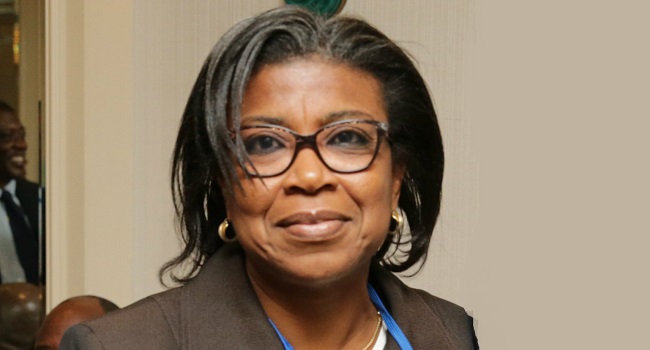Business
Nigerian govt justifies borrowing to finance budget deficits, critical infrastructure

Despite the huge debt profile being incurred by the country, the Federal Government has justified the continued borrowing, noting that it is crucial towards financing budget deficits and critical infrastructure.
Patience Oniha, the Director-General of the Debt Management Office (DMO), said this in an interview with the News Agency of Nigeria (NAN) on Thursday in Lagos.
Oniha said that government borrowings were done by all countries across the world, mostly to finance critical infrastructure.
The DMO DG further clarified that advanced countries also resort to borrowing in order to boost their economies.
“The issue of debt has become topical in Nigeria that sometimes it almost looks as if borrowing is an offence or a crime.
“The first thing we must understand is that countries across the world borrow, be it poor countries, advanced countries, developed countries, emerging markets. They all borrow.
“We usually hear complaints that debt levels are rising in Nigeria. Globally, debt levels are rising, not just in Nigeria, ” she said.
The director-general said that the advent of COVID-19 had also made borrowing imperative for some countries.
READ ALSO: Nigerian govt’s borrowing from CBN jumps over 2000% in seven years
“What has happened with COVID-19 is that countries needed to spend more, not only on health needs but on social needs as well, because we need to take care of people who are losing their jobs.
“We need to create incentives for the private sector to continue operating in order to avoid a big recession because most countries experienced a recession.
“We did as well, but we came out of it after two quarters. Government spending is one of the tools you can use properly to exit a recession.
“In Nigeria, we borrow to finance budget deficits, sometimes we borrow to finance specific projects and services like railways and airports. Financing infrastructure is an economy itself. It creates jobs across all sectors.
“We also borrow to finance maturing loan obligations like the Federal Government of Nigeria (FGN) bonds and Nigeria Treasury Bills,” she said.
The DMO had recently said that the country’s total debt stock as of December 2021 was N39.55 trillion.
It also said that the debt stock was likely to hit N45 trillion in 2022, as the government planned to borrow an additional N6.39 trillion to finance the 2022 budget deficit.
Join the conversation
Support Ripples Nigeria, hold up solutions journalism
Balanced, fearless journalism driven by data comes at huge financial costs.
As a media platform, we hold leadership accountable and will not trade the right to press freedom and free speech for a piece of cake.
If you like what we do, and are ready to uphold solutions journalism, kindly donate to the Ripples Nigeria cause.
Your support would help to ensure that citizens and institutions continue to have free access to credible and reliable information for societal development.
























